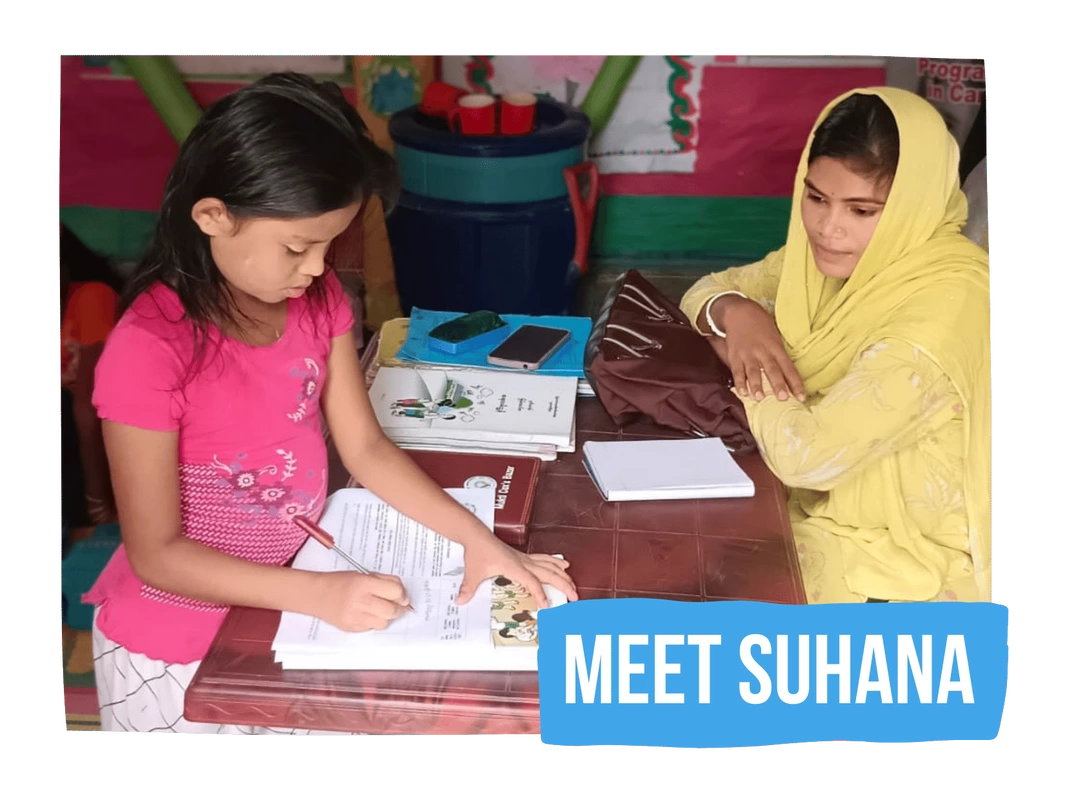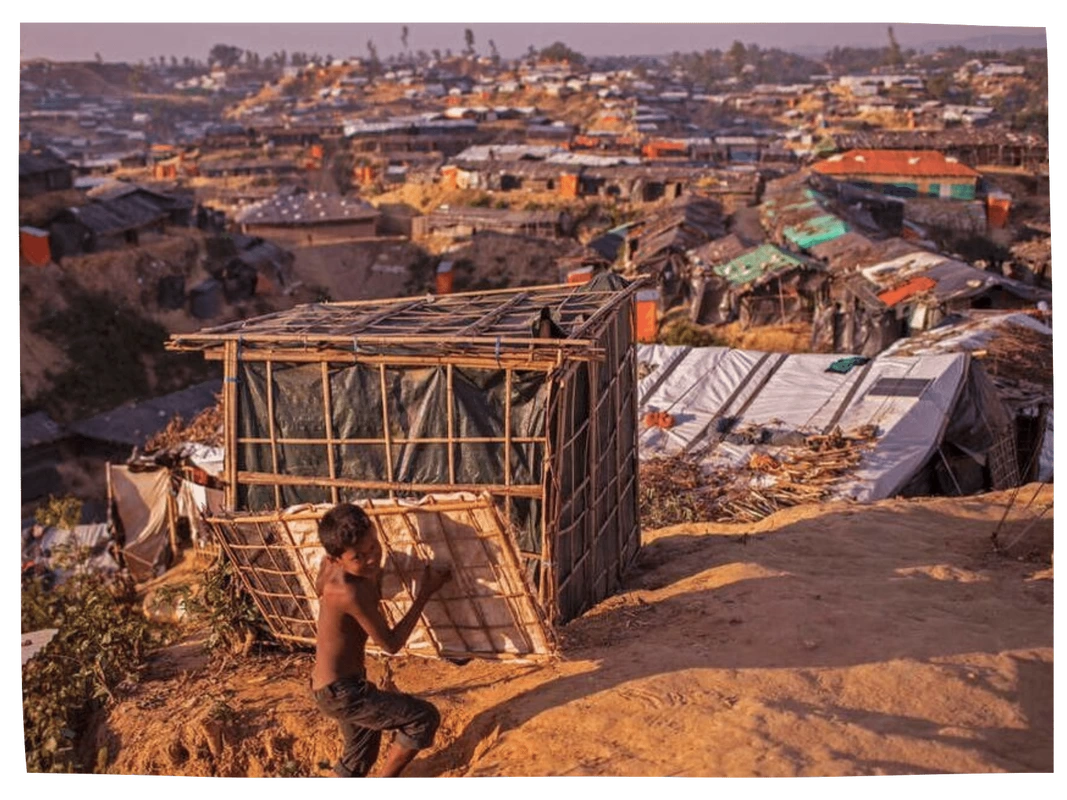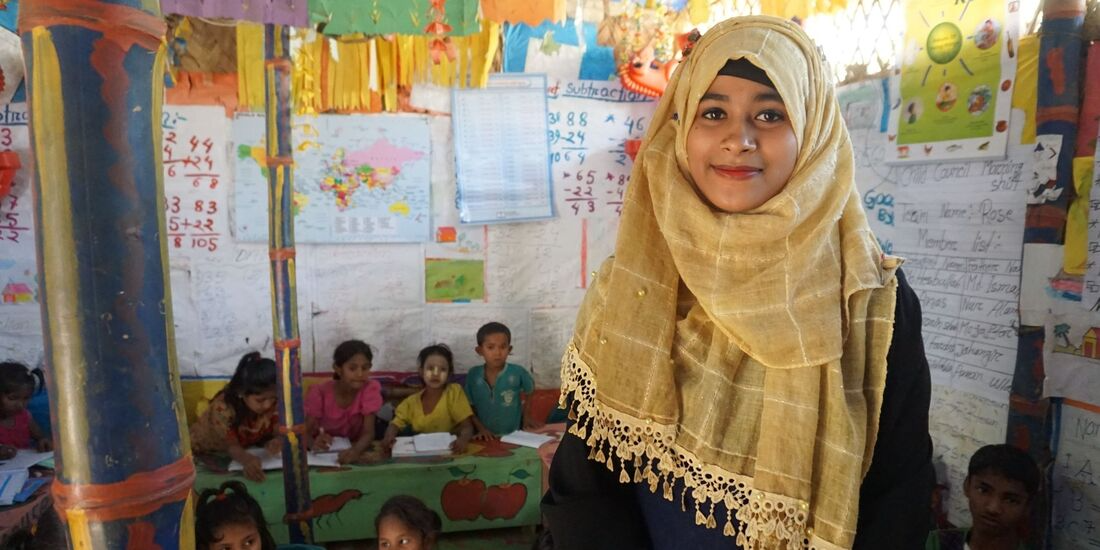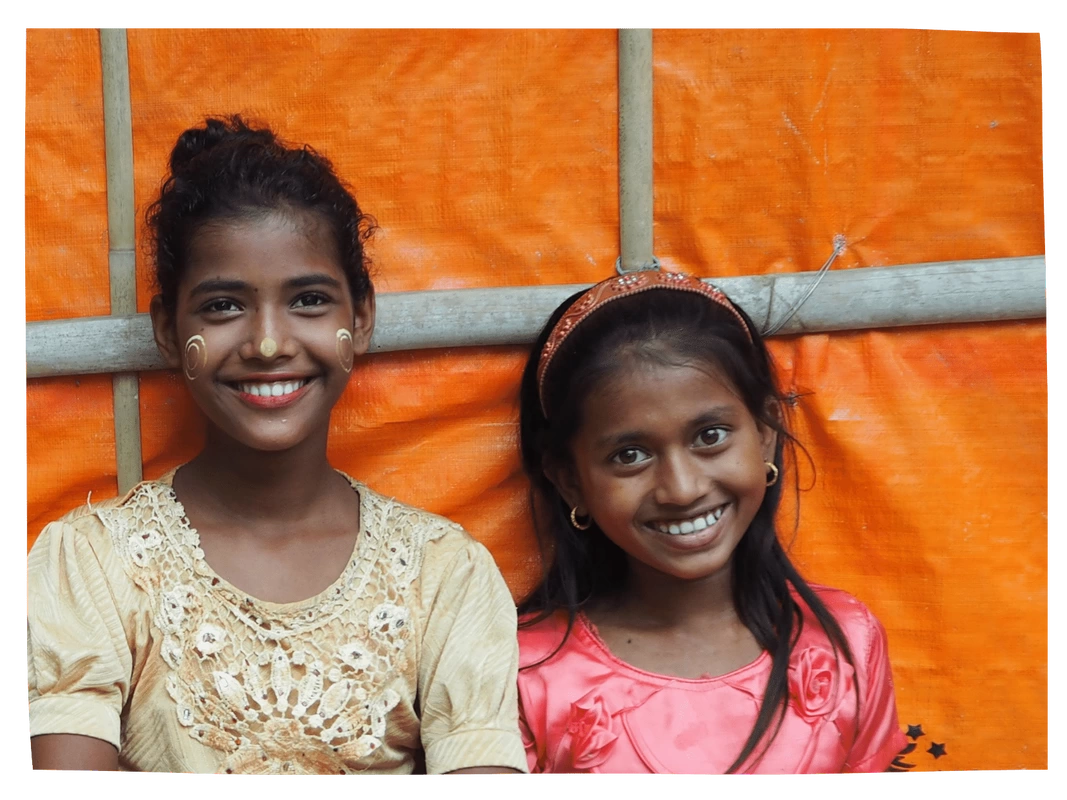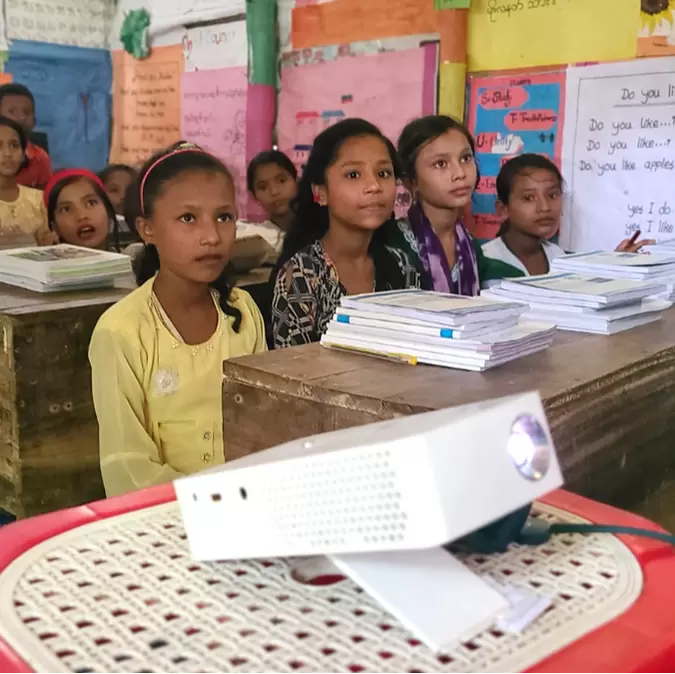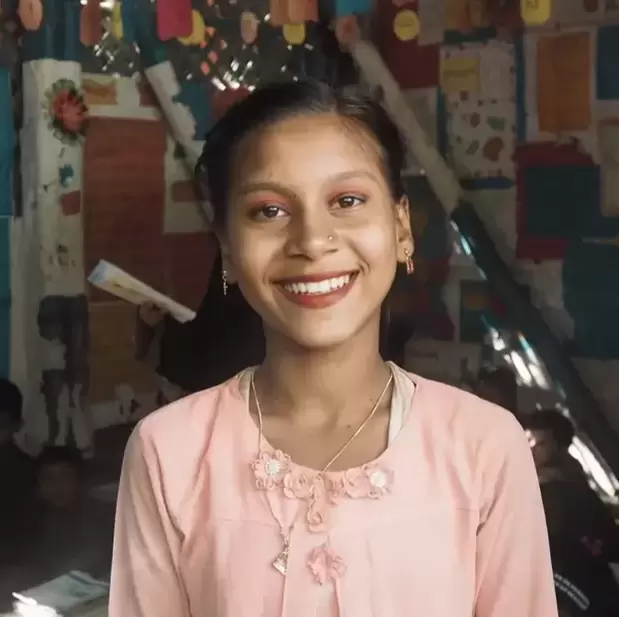Kutupalong in Bangladesh is the world's largest refugee camp and home to over 880,000 Rohingya refugees who have fled violence in Myanmar.
Children on the Edge has been working here since 2010, supporting education for refugee children who are otherwise cut off from learning. 100 colourful classrooms in 50 learning centres provide high quality education in a child friendly space, for refugee children.
|
SUHANA is ten years old and dreams of returning home to Myanmar to be a teacher one day.
She lives in Kutupalong with her family and attends one of our learning centres where she tells us she feels safe and able to express herself through drawing and writing, and taking part in 'Moja Kids' video newsletters. She loves learning, especially through our unique digital lessons and Suhana feels proud to be a student. Thanks to her teachers, she knows that despite living in a refugee camp, she has a voice and a unique story to share. She has hope for the future and believes that education will open so many doors for her. |
WORKING ON 'THE EDGE' IN KUTUPALONG
|
WHAT WE DO TO HELP
Since 2010 we have been working to provide education and support to Rohingya refugee and slum dwelling children in Bangladesh. Working with our partner organisation, Mukti Cox’s Bazar, we now support 100 classrooms in the Kutupalong camp providing education for 5000 children. 50 colourful learning centres encourage creativity and self expression with digital lessons, plenty of play and basic health support in safe spaces with trusted adults.
Children on the Edge were well placed to respond when the crisis hit in 2017 and hundreds of thousands of Rohingya refugees fled Myanmar into Bangladesh. Together with Mukti Cox’s Bazar, we worked quickly to construct learning centres in the Kutupalong camp and train 150 Bangladeshi and Rohingya teachers.
Each learning centre has two classrooms, which are colourful spaces with vibrant ‘gardens’ growing outside. Rohingya children benefit from daily access to basic education, play, health inputs, nutritional support and creative opportunities.
Children on the Edge were well placed to respond when the crisis hit in 2017 and hundreds of thousands of Rohingya refugees fled Myanmar into Bangladesh. Together with Mukti Cox’s Bazar, we worked quickly to construct learning centres in the Kutupalong camp and train 150 Bangladeshi and Rohingya teachers.
Each learning centre has two classrooms, which are colourful spaces with vibrant ‘gardens’ growing outside. Rohingya children benefit from daily access to basic education, play, health inputs, nutritional support and creative opportunities.
Daily digital lessons are projected onto screens in each classroom, to break down language barriers and enable children to genuinely understand and learn. This technology also gives them the opportunity to experience something of life beyond the confines of the camp.
Through ‘Moja Kids’, their own online platform, students create video updates to share back and forth with children outside the camps. This not only gives them a voice and a place to express their talents and creativity, but enables them to interact and tackle their sense of isolation.
YOU CAN MAKE A DIFFERENCE.Help more refugee children like Suhana to feel safe again and get their education back on track with a donation.
By donating today, you will directly help children who have fled violence to get the education they deserve. |
As a small charity, with a big reach we are grateful for every penny we receive, and are committed to spending your donation where the need is greatest. For every pound spent by Children on the Edge, 89p goes directly to our international programmes.
YOU MIGHT LIKE
|
READ HOW WE'RE TACKLING LANGUAGE BARRIERS FOR ROHINGYA REFUGEE CHILDREN
|
|

